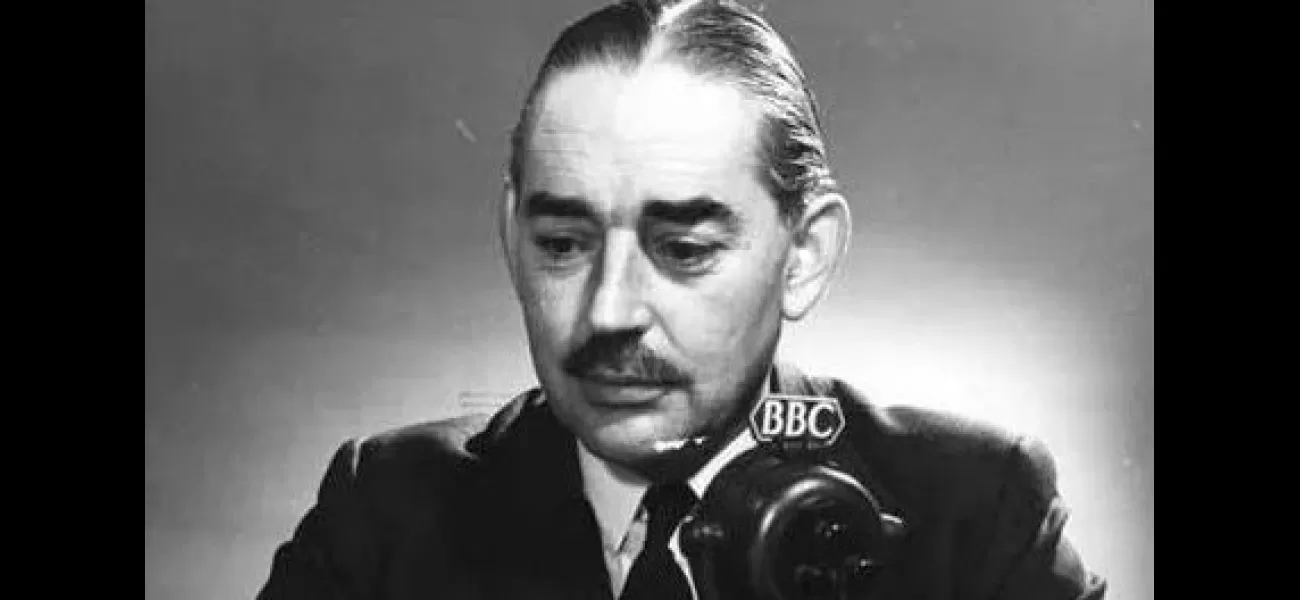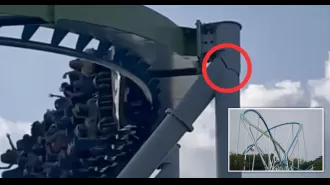Today marks the 70th anniversary of the BBC's first news broadcast, highlighting the stark contrast to its current form.
We must not forget this important moment in history.
July 5th 2024.

As we reflect on the past and celebrate our present, it's hard to imagine a world without 24/7 news coverage. It's become such an integral part of our lives that we can't imagine starting our day without tuning into the latest updates. But it wasn't always this way. In fact, it was only 70 years ago that news TV made its debut in Britain.
On July 5, 1954, the BBC launched its first daily television news programme, News and Newsreel. It was a monumental day not just for the British political landscape, but for the nation as a whole. The 20-minute bulletin was presented by Richard Baker and John Snagge, who became the faces of the show. It was a small but significant step towards the widespread news coverage we have today.
However, the initial reception was not all positive. The BBC received criticism for the show, with some calling it "absolutely ghastly" and comparing it to "fat stock prices", visually impressive but lacking substance. But what were the actual news stories covered in this first-ever bulletin?
The top story was about truce talks being held in Hanoi, Vietnam, after a decade-long conflict between the French and the Democratic Republic of Vietnam. The second major news item was about French troops moving in Tunisia, which coincided with the country being granted complete autonomy by French premier Pierre Mendès-France. The bulletin also featured newsreel films and ended with a report on the end of rationing after the Second World War.
Interestingly, the presenters, Baker and Snagge, were not seen on camera. The BBC felt that their appearances would be off-putting to the audience, and so they presented the whole show off-camera. The director general at the time, Sir Ian Jacob, acknowledged that there were some teething issues with the new format. He stated that presenting news on television was not an easy task, especially when the main news items were not easily made visual. However, he also recognized the significance of this new development and its potential for the future.
Despite the initial criticism, the BBC saw an increase in viewership during the mid-50s, and they decided to expand their news content. This decision has paid off, as BBC News is now a staple in our lives, and we can't imagine a day without it. Of course, with live television, there are bound to be some amusing blunders, and the BBC is no exception. From newsreaders not realizing they're still on air to technical mishaps, there have been many memorable moments in the history of BBC News.
One such incident that caused a stir on the internet was when news anchor Maryam Moshiri appeared to give the middle finger during a live broadcast last year. She later apologized, explaining that she had been joking around with the crew and didn't expect it to air. It's moments like these that remind us of the human side of news reporting and make it all the more relatable.
As we look back on the past 70 years, it's evident that TV news has come a long way. It has become a vital source of information and entertainment for people all over the world. And with the rise of dedicated 24/7 news channels, we can only imagine what the future holds for this ever-evolving medium. Do you have a story to share? We would love to hear from you. Get in touch with our entertainment team by emailing us, calling us, or visiting our Submit Stuff page. Let's continue to make history together.
On July 5, 1954, the BBC launched its first daily television news programme, News and Newsreel. It was a monumental day not just for the British political landscape, but for the nation as a whole. The 20-minute bulletin was presented by Richard Baker and John Snagge, who became the faces of the show. It was a small but significant step towards the widespread news coverage we have today.
However, the initial reception was not all positive. The BBC received criticism for the show, with some calling it "absolutely ghastly" and comparing it to "fat stock prices", visually impressive but lacking substance. But what were the actual news stories covered in this first-ever bulletin?
The top story was about truce talks being held in Hanoi, Vietnam, after a decade-long conflict between the French and the Democratic Republic of Vietnam. The second major news item was about French troops moving in Tunisia, which coincided with the country being granted complete autonomy by French premier Pierre Mendès-France. The bulletin also featured newsreel films and ended with a report on the end of rationing after the Second World War.
Interestingly, the presenters, Baker and Snagge, were not seen on camera. The BBC felt that their appearances would be off-putting to the audience, and so they presented the whole show off-camera. The director general at the time, Sir Ian Jacob, acknowledged that there were some teething issues with the new format. He stated that presenting news on television was not an easy task, especially when the main news items were not easily made visual. However, he also recognized the significance of this new development and its potential for the future.
Despite the initial criticism, the BBC saw an increase in viewership during the mid-50s, and they decided to expand their news content. This decision has paid off, as BBC News is now a staple in our lives, and we can't imagine a day without it. Of course, with live television, there are bound to be some amusing blunders, and the BBC is no exception. From newsreaders not realizing they're still on air to technical mishaps, there have been many memorable moments in the history of BBC News.
One such incident that caused a stir on the internet was when news anchor Maryam Moshiri appeared to give the middle finger during a live broadcast last year. She later apologized, explaining that she had been joking around with the crew and didn't expect it to air. It's moments like these that remind us of the human side of news reporting and make it all the more relatable.
As we look back on the past 70 years, it's evident that TV news has come a long way. It has become a vital source of information and entertainment for people all over the world. And with the rise of dedicated 24/7 news channels, we can only imagine what the future holds for this ever-evolving medium. Do you have a story to share? We would love to hear from you. Get in touch with our entertainment team by emailing us, calling us, or visiting our Submit Stuff page. Let's continue to make history together.
[This article has been trending online recently and has been generated with AI. Your feed is customized.]
[Generative AI is experimental.]
0
0
Submit Comment





